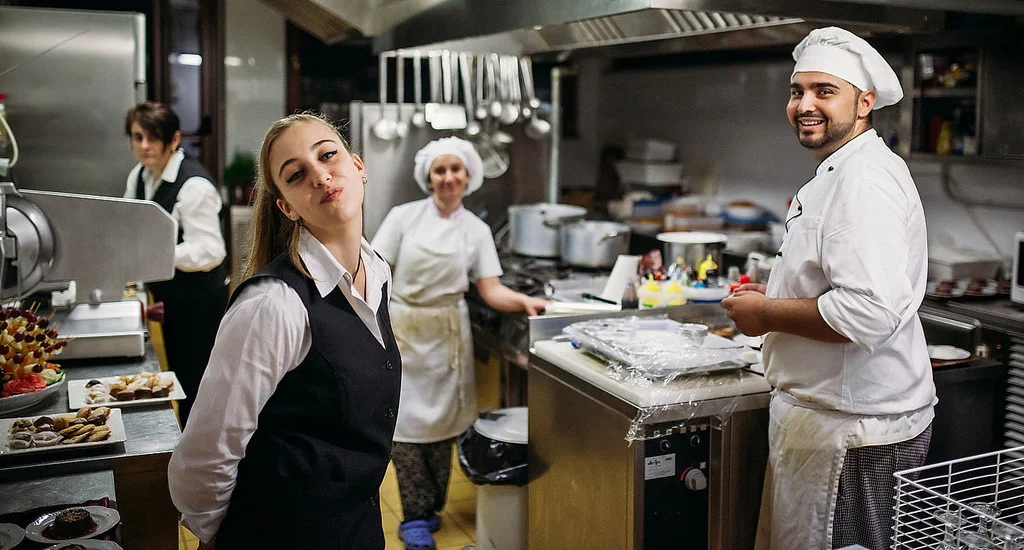Bernie Sanders is a radical and has been for 45 years. For the bar and restaurant industry, he is particularly radical because of his calls for changes we would likely never implement on our own.
Policies like paid time off (PTO), mandatory vacation time, raising the minimum wage and family medical leave are a powerful rallying cry for his base, but what does it mean to those of us that bear the consequences of a major statutory change?
What is this PSL thing, anyway?
Since 2006, San Francisco has required paid sick leave (PSL) be made available to hourly employees of businesses with more than five people on staff. Here is how it works:
- Every employee is entitled to five days of paid time off for either their own illness or that of a family member.
- Employees accrue one hour of PSL per 30 hours worked.
- This time off cannot be tied to consequences and the employee has no responsibility to cover their shift.
This is a relatively simple benefit for almost every other industry, but it’s particularly frustrating to the restaurant operators that it impacts. The “No Consequence” aspect of the law is a key component and has generated the most complaints to the San Francisco Labor Department (albeit fairly rare).
Restaurant employees tend to be younger, less responsible and more likely to abuse something as valuable as paid sick time. So what has the impact been in San Francisco and the other municipalities that have adopted paid sick leave?
Much Ado About Nothing?
The Institute for Women’s Policy Research published a survey of results from San Francisco’s PSL implementation. There were highlights from their conclusions:
- Half of employees utilized their allotted PSL
- 83% of all employers claimed that their business circumstances remained about the same
New York City passed its legislation in April of 2014 requiring businesses with five or more employees to provide five days of paid leave for any employee of the company. With this law about to reach a two year anniversary, you would think there is some data about its impact… and you’d be right. It further confirms the San Francisco study. It highlights that NYC’s economic outlook hasn’t withered and, in fact, unemployment is down, workforce participation is climbing and prices at restaurants have stayed flat.
That isn’t to say PSL laws have been perfect, but the general consensus is positive. Operators in NYC weighed in on this and were surprisingly supportive. The complaints they leveled were about the administration and implementation of the law, not the consequences.
Is my city next?
Several other cities and a couple of states have also hopped onto the bandwagon. Cities the size of Portland, OR; Oakland, CA; and Philadelphia, PA are now mandating PSL, and California and Massachusetts are mandating it statewide.
Similar legislation is being considered by several states including Connecticut, Illinois, Louisiana, Hawaii, Alaska, Arizona, Michigan, Nevada, New Hampshire, Nebraska and…well, you get the picture. It seems ever more likely that this benefit is coming to your town, sooner rather than later.
Ethics vs. Economics?
Every operator faces a choice between what is best for their staff/community and what is best for their business. Even the most cynical bean counters have to acknowledge that giving people paid sick leave is the “right” thing to do. Given that Chipotle’s norovirus outbreak could have been avoided if sick employees weren’t required to work, the risk/safety question alone is worthy of consideration.
Additionally, every study conducted regarding a link between employee retention and benefits has proven solidly that PSL will improve your staff quality and retain them. Given the very real War for Talent in the hospitality space, that’s a really good thing.
The math, however is a trickier part. Let’s do a quick analysis, using the typical PSL rules adopted over the past two years.
Staff wage: $12/hr
PSL earned/hour worked: 1 hr/8 hrs worked
PSL max: 40 hrs
Total Hrs need to earn five paid days: 1200
Average hours redeemed: 19
Total Cost: $228
Cost per hour: 19 cents/hour or a wage increase of .015%
While that number isn’t too intimidating it can add up quickly. Over your entire team, it could easily reach $5000 per year. That number is no joke. It’s about the price of a new ice machine or a family vacation to Disney World. As we observed earlier, most of the operators polled and interviewed don’t think it’s been a problem for their business, but we thought you should at least see how it works.
In my opinion, it will likely balance out to be a good program even if it was a mandated one. You can use it as a recruiting tool, you are more likely retain your best team members, and you will maintain a safer environment for managing foodborne illness. Besides, if an employee is willing to abuse it, they are likely a problem elsewhere for you and won’t be around too long anyway.
Whether you take the high road of the ethical argument or rationalize the economic one, you will manage it, because that is what we do.
Chef image by TuscanyEvents.
Kitchen worker image by Bass Nroll.


